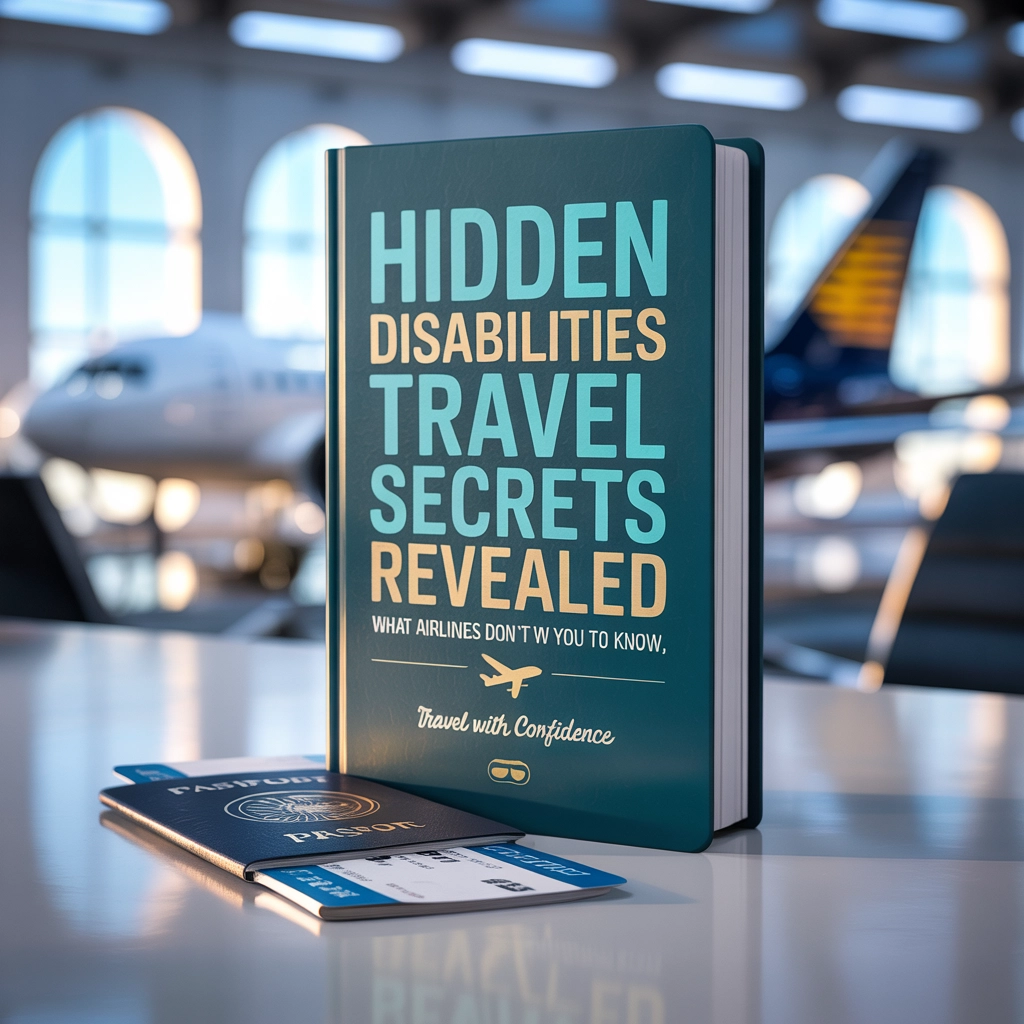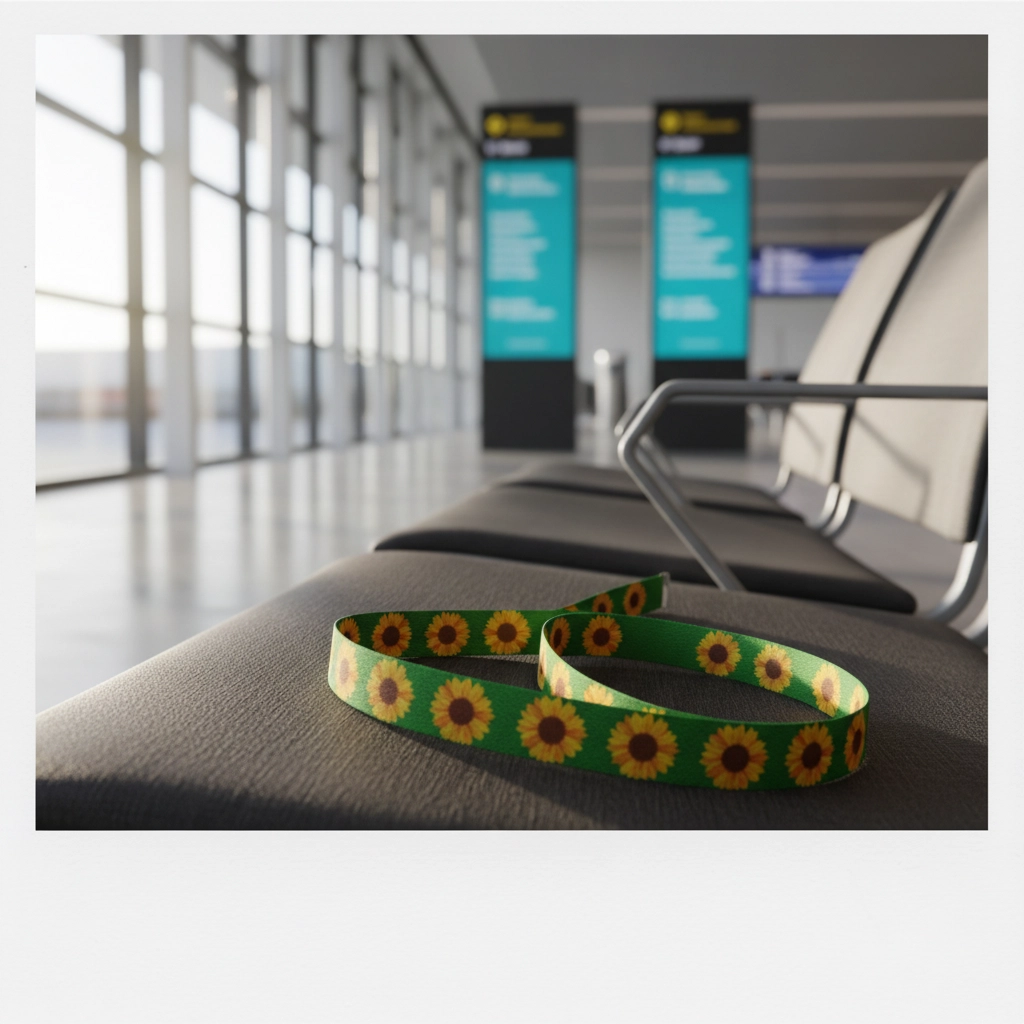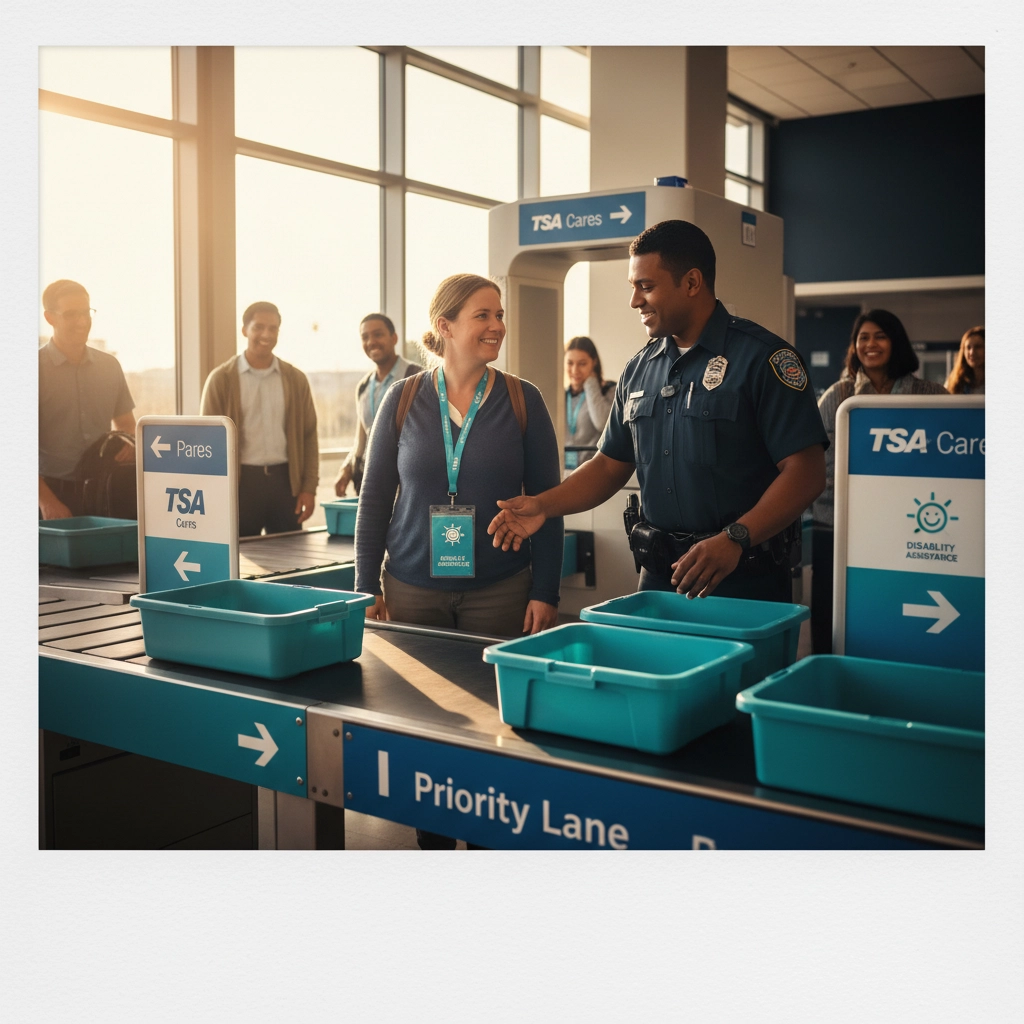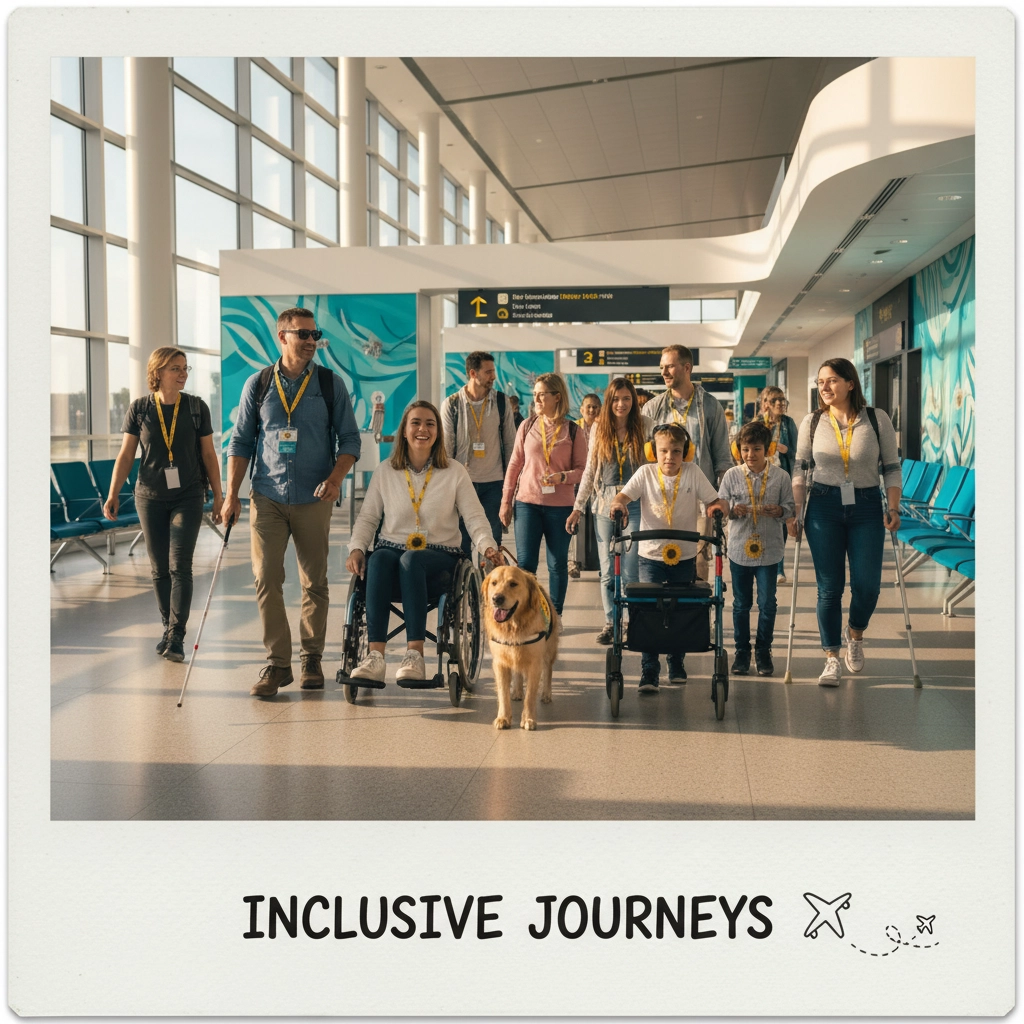Hidden Disabilities Travel Secrets Revealed: What Airlines Don't Want You to Know.
For our US customers

Traveling with a hidden disability can feel overwhelming, especially when you're unsure about what support is actually available to you. The good news? There are numerous accommodations, programs, and rights that many travelers simply don't know exist. While airlines and airports do provide these services, they often don't actively promote them, leaving many passengers to navigate unnecessary challenges.
Let's explore the comprehensive support systems available to you, so your next journey can be as smooth and comfortable as possible.
The Game-Changing Sunflower Lanyard Program
One of the most valuable resources for travelers with invisible disabilities is the Hidden Disabilities Sunflower lanyard. This simple green lanyard with sunflower print was introduced at Gatwick Airport in 2016, and it's designed to do something quite remarkable – it allows you to signal that you have an invisible disability without having to disclose your specific condition.

The beauty of this program lies in its discretion and effectiveness. Whether you're managing chronic illness, anxiety, autism, learning difficulties, or any other invisible condition, the Sunflower lanyard communicates to airport and airline staff that you may need additional support, assistance, or simply more time during your journey.
What makes this even better is the program's incredible expansion. Over 140 airports worldwide now recognize the Sunflower lanyard, making it an invaluable travel companion for international journeys. You can obtain your lanyard free of charge from participating airports or purchase one online before your trip.
Unlocking Airline Booking Strategies
Most airlines offer multiple opportunities to indicate your disability status, but knowing when and how to do this can make all the difference to your travel experience. You have several options: during the initial booking process, after booking through your account management system, or during check-in when confirming your travel details.
The Power of Advance Notification
When you provide disability information in advance, it triggers preparation for specialized assistance. This isn't just about wheelchair assistance – it includes support for cognitive differences, sensory processing needs, and mobility considerations that might not be immediately visible.
Smart Flight Selection
Here's something many travelers don't consider: airlines typically recommend non-stop flights for passengers with disabilities whenever possible. Why? Because reducing time spent in airports and on aircraft minimizes stress and potential complications. This advice is particularly valuable if you experience anxiety, have sensory processing differences, or manage chronic fatigue.
Your Secret Weapon: TSA Cares Program
The Transportation Security Administration operates a specialized program called TSA Cares that many travelers have never heard of. When you submit a TSA Cares request, you're assigned a Passenger Support Specialist (PSS) who receives specific training to assist people with disabilities through security screening.

This service is completely free and can transform what might otherwise be a stressful part of your journey into a supportive experience. The specialist understands various disability needs and can provide personalized assistance while maintaining your dignity and privacy. Canada operates a similar program for international travelers, so this support extends beyond U.S. borders.
Most importantly, you don't need to prove your disability or provide extensive documentation – your own assessment of your needs is respected and accommodated.
Understanding Your Legal Rights
The Americans with Disabilities Act (ADA) and Air Carrier Access Act (ACAA) provide comprehensive protections that go far beyond what many travelers realize. Every single airline is required to have a Complaint Resolution Officer (CRO) – someone specifically trained to assist travelers with disabilities in resolving any difficulties that arise during travel.
What Airlines Must Provide
Airlines are legally required to offer assistance to and from gates and baggage areas, specialized boarding procedures (you typically board first and disembark last, giving you extra time and space), and accommodation for service animals. Many airlines also provide reduced fares for companions or caregivers when medically necessary, and some offer insurance coverage for lost or damaged mobility aids.
Seating Accommodations
You can request bulkhead seats for additional legroom if mobility is a concern, though emergency exit rows may not be available depending on your specific needs. The key is knowing that these accommodations exist and requesting them confidently.
Smart Medication Management Strategies
For travelers managing chronic conditions, there's a specific strategy that medical professionals recommend: the 10-day buffer approach. Pack 10 extra days of medication beyond your planned return date. This accounts for average maximum delays during major disruptions like severe weather or airline strikes.

Here's another insider tip: distribute your medications strategically. Keep the majority in your personal item (which stays with you), but place portions in checked baggage for international emergency situations. This ensures you're never completely without essential medications, even if luggage is delayed or lost.
When purchasing travel insurance, ensure your doctor documents any pre-existing conditions as "stable for 90+ days" before buying coverage. This specific phrasing can significantly impact how insurance companies classify your health status and coverage eligibility.
The Value of Specialized Support
First-time travelers with disabilities often benefit enormously from working with travel agents who specialize in disability travel. These professionals understand the intricacies of accessible travel and can navigate airline policies more effectively than general travel agents.
At Altogether Travel, we understand these unique needs because we specialize in creating comfortable, supported travel experiences. We know which questions to ask, which accommodations to request, and how to ensure your journey is as smooth as possible.
Pre-Travel Confirmation
Always confirm all accommodation requests at least 48 hours prior to departure. This ensures proper staffing and equipment availability at both your departure and arrival airports. It might seem like extra work, but this simple step can prevent significant complications on travel day.
Breaking Down Barriers with Knowledge
The most important insight here is that these accommodations aren't really "secrets" – they're legally mandated services that airlines must provide. However, many travelers with hidden disabilities never access them due to lack of awareness or hesitation to self-identify.

Understanding and utilizing these resources can transform what might otherwise be a stressful travel experience into a manageable journey with appropriate support systems in place. You have rights, you have options, and you deserve to travel with confidence and comfort.
Planning Your Next Adventure
Remember, traveling with a hidden disability doesn't mean compromising on your travel dreams. Whether you're interested in exploring Europe's most accessible cities or planning a completely different adventure, these resources and accommodations are there to support you.
The key is preparation, knowledge, and confidence in requesting the support you need. Every person's needs are different, and that's perfectly normal. The travel industry has systems in place specifically designed to accommodate this diversity – you just need to know how to access them.
Most importantly, don't let uncertainty about available support prevent you from exploring the world. These accommodations exist specifically to ensure that everyone can travel comfortably and safely, regardless of their disability status.
If you're ready to start planning your next accessible adventure, we'd love to help make it happen. Get in touch with us and let's discuss how we can create the perfect supported travel experience for your specific needs. We look forward to hearing from you soon and helping you discover just how accessible the world can be.
